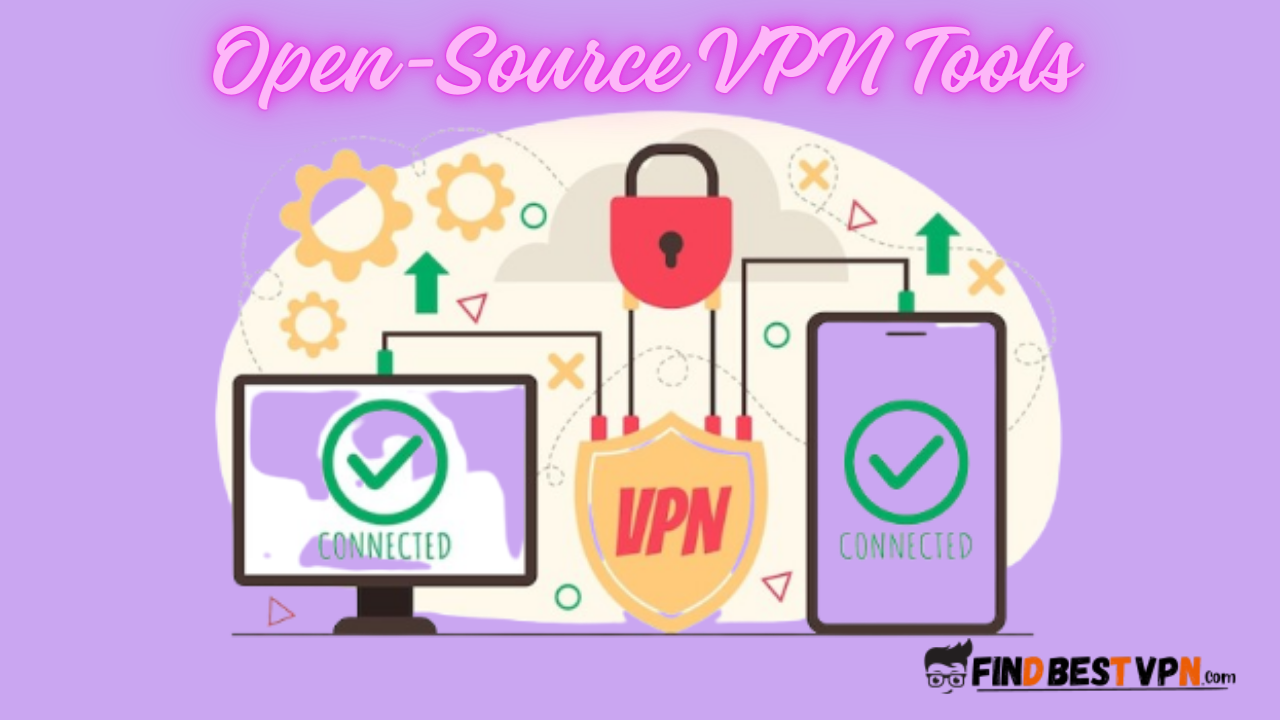
7 Best Open-Source VPN Tools To Use This Year
Getting the right VPN tool for your work is the most important part when you want to choose the best VPN with good specification. By doing preliminary research you can find that the more devices you connect to your network, the sooner the costs increase. As a result, you search for alternatives that won’t break the bank and eventually come across open-sourceVPN Tools.
What Exactly Are Open-Source Virtual Private Networks (VPNs)?
Open-sourceVPN Toolsare VPN implementations that are free and open to the public. This means that anyone can access the VPN software’s source code and, provided they adhere to the license’s terms, make changes and redistribute the software.
Businesses that need more control over their VPN infrastructure and want to avoid the vendor lock-in that comes with proprietary VPN solutions frequently turn to open-source VPNs.
Businesses can customize open-source VPN software to meet their needs and benefit from community-driven development and support.
OpenVPN, WireGuard, and SoftEther VPN are just a few open-source VPN solutions or VPN protocols. These solutions offer encryption, authentication, access control, and OS and platform support.
It’s worth noting that while open-source VPN solutions may offer more wiggle room and command precision than proprietaryVPN Tools, they may also be more difficult to set up and keep running.
Benefits Of Using Open-Source Software
Using an open-source VPN instead of a paid service has several advantages:
- Transparency:Since the source code for open-sourcebest free VPN toolsis accessible to the general public, users can examine it to ensure no security flaws or backdoors. Users will have more faith in the safety and anonymity of their VPN connection because of this openness.
- Flexibility: Since users of open-source VPNs have access to the code, they can tailor the service to their requirements with greater ease than with commercial VPNs. Users can change the VPN’s settings to add new features or to make it compatible with more platforms and devices.
- Cost:Open-source VPNs typically cost nothing or much less than commercial VPN services. Having the financial resources to subscribe to a paid VPN service can be especially useful for startups and individuals.
- Public Backing: Users of open-sourceVPN Toolscan usually count on help from the project’s developer community. This means that users can use the community’s extensive knowledge and experience in solving technical problems and other difficult issues.
- Privacy:The fact that the VPN provider cannot access data when utilizing an open-source VPN gives users peace of mind. This is so because anyone can look at the VPN’s source code and see that it doesn’t track or log user activity.
Top 7 Open-Source Virtual Private Network Options
Open-source VPNs can be significantly more complicated to set up and maintain due to their “free reign” nature. Are they not deterred? Then, keep reading to determine whichVPN Toolsare the best open-source options. Following are the top 7 open-source virtual private network options which can guide you to buy the best VPN today :
Freelan
Using the Internet as a LAN, Freelan is one of thebest vpn tools, a peer-to-peer virtual private network (VPN) that is free, open-source, and compatible with multiple platforms. It’s compatible with Mac OS X, Linux, and Windows.
Freelan uses safe, low-level languages like C and C++ in its development. We made sure it was reliable and efficient by testing it extensively.
It operates undetectably as a hidden service behind the scenes. After installation and initial configuration, you can set it and forget it.
iPig
Regarding VPN servers, iPiG Secure Access VPN Server is widely considered the best free option for Windows XP and Vista users.
Its robust 256-bit encryption ensures that your connection remains secure, and it integrates seamlessly with your firewall software to build a secure network.
Any Wi-Fi hotspot or wired network can benefit from the secure tunnel that iPig builds to protect your communications (including Web, IM, VoIP, calls, FTP, and email). The type of Internet connection is irrelevant; iPig will function with any of them.
Libreswan
In development for over 15 years, Libreswan is a free, open-sourceVPN toolservice. Libreswan is compatible with both of the IKE versions. It is compatible with Linux (versions 2.4–5.x), FreeBSD, and Mac OS X.
It is bundled with Fedora, RHEL/EPEL, and Arch Linux, among others, and can be installed with the operating system’s built-in package manager. You can download older versions, bug fixes, the full source code, or even pre-compiled binaries from their site.
Openswan
For Linux users, Openswan provides an IPsec implementation. Regarding IPsec features, it supports most RFC and IETF-draft-level add-ons, such as IKEv2, X.509 digital certificates, NAT traversal, etc.
Since 2005, Openswan has been an integral part of the Linux ecosystem, with pre-built packages available for Fedora, Red Hat, Ubuntu, Debian, and Gentoo.
While it is true that OpenVPN is one of the more challenging open-source VPNs to configure properly, new users are fortunate to have access to a very helpful community.
OpenVPN
OpenVPN is a market leader in private networking and cybersecurity worldwide, providing organizations with a flexible, affordable, and scalable means of protecting their most valuable assets.
Their cloud-based platform works with multiple operating systems without any hassle. OpenVPN is free and open-source software, but it offers VPN-as-a-service plans for companies with ten or more users.
Securepoint
Securepoint is a German cybersecurity firm that manufactures and distributes firewall routers, among other things. However, they have a free VPN client available for download on their site and are staunch supporters of open-source VPNs.
The SSL VPN client is naturally compatible with all Securepoint VPN and UTM gateway. Securepoint’s VPN and UTM offerings are compatible with Windows 7 and support the protocols above in addition to L2TP/PPTP, IPSec with an X.509 certificate/IKE and preshared keys, SSL VPN (OpenVPN), and IKEv1 and IKEv2.
Securepoint offers its own SSL VPN client and can purchase other VPN software.
SoftEther
As an academic project at the University of Tsukuba, SoftEther VPN (short for “Software Ethernet”) is a robust, free, and user-friendly multi-protocol open-source VPN software. It is compatible with Mac OS X, FreeBSD, Solaris, and Windows.
It is possible to duplicate the OpenVPN Server with SoftEther VPN. The switch from OpenVPN to SoftEther VPN is simple. Windows Vista, 7, and 8 users of SoftEther VPN can connect to a Microsoft SSTP VPN.
Conclusion On VPN Tools
As all open-source VPN clients and developer source code are freely downloadable, anyone can easily build their own or significantly modify their favorite client. While the community aspect of open-source VPN projects allows for faster updates and more consistent patches and fixes, setting up a free VPN toolcan be daunting for those with prior experience.



















